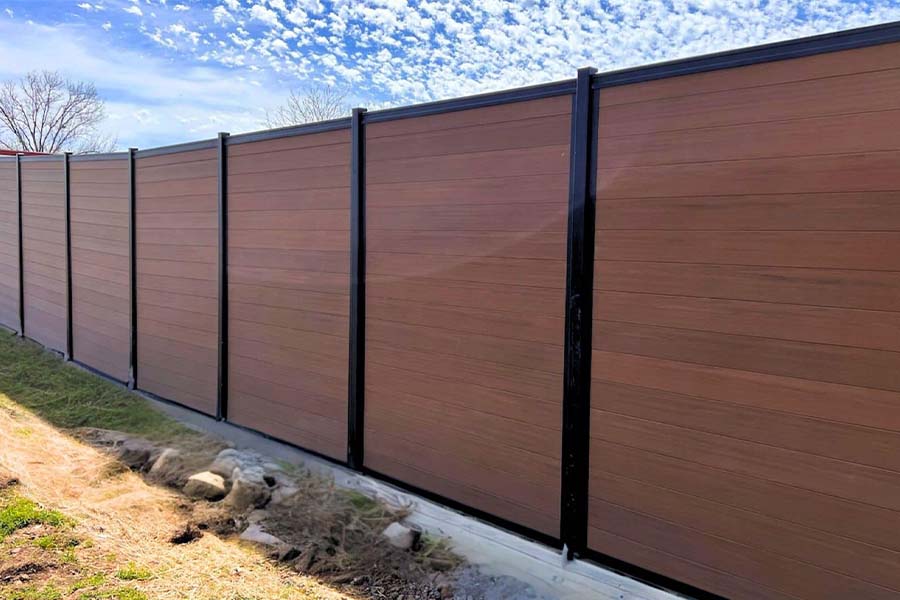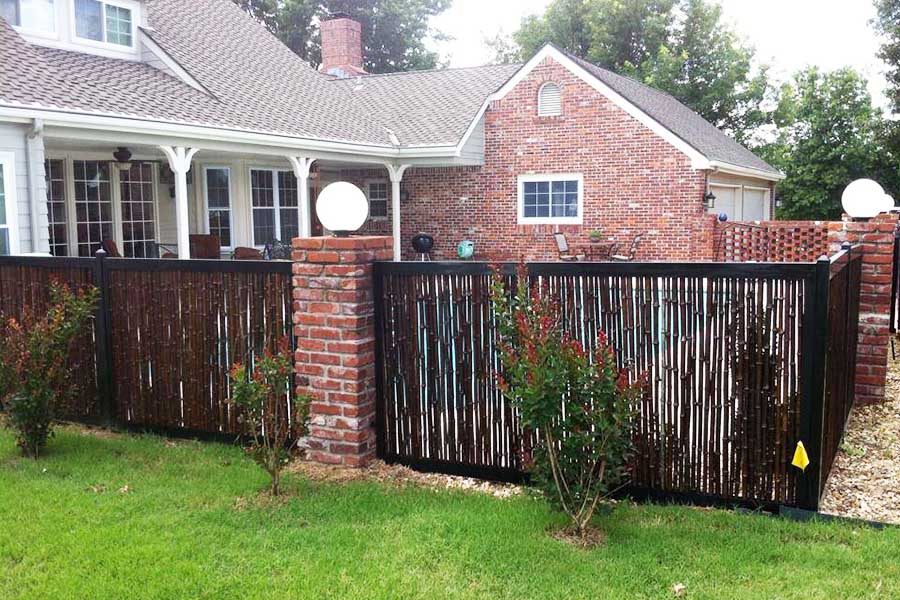All Categories
Featured

When it comes to picking the best fencing material for your building, timber, aluminum, and vinyl are amongst the most popular alternatives. Below, we damage down the benefits and disadvantages of these three usual fencing materials.
Timber Fencing. Pros:
Visual Allure: Timber fences supply a natural, timeless appearance that complements most kinds of landscaping and design. They can be easily customized with paint or stain, offering you the freedom to develop the best shade and surface for your property. Versatility: Wood can be utilized to develop a range of fencing designs, from traditional picket fencings to much more contemporary styles like personal privacy fencings or rustic ranch-style fencings. It's simple to customize or include to in time if your demands alter. Price: Wood is commonly much more economical than plastic or light weight aluminum, making it an attractive choice for house owners on a budget. The preliminary expense of a wood fence is normally less than the various other materials. Disadvantages:

Maintenance Demands: Timber fencings call for regular maintenance, including staining, sealing, or paint to protect them from weathering, rot, and bug damages. Without proper treatment, timber can degrade rapidly. Sturdiness: Timber is susceptible to harm from pests like termites, and it can warp, crack, or split with time as a result of direct exposure to the aspects. In locations with extreme climate conditions, timber might need to be replaced more often than other products. Minimal Life-span: While timber fencings can last for several years with proper treatment, they usually have a much shorter life-span than vinyl or aluminum fencings. Plastic Secure fencing. Pros:
Low Maintenance: One of the biggest benefits of plastic fence is its low maintenance needs. Unlike timber, plastic doesn't require to be repainted, discolored, or sealed. It's resistant to fading, fracturing, or bending, making it suitable for house owners that desire a problem-free fence. Longevity: Vinyl fencings are immune and highly long lasting to the aspects, consisting of UV rays, rainfall, and humidity. They're likewise impervious to pests, such as termites, that can harm timber fencings. Selection of Styles: Vinyl fencings been available in a variety of designs and colors, and several mimic the appearance of timber without the maintenance downsides. You can select from privacy fences, picket fences, and more to fit your demands. Long Life-span: With proper care, vinyl fencings can last years, far longer than timber fences, and they include warranties that supply comfort. Disadvantages:
Greater Preliminary Expense: While vinyl fences can save money on upkeep over the years, they have a tendency to have a greater upfront expense than wood fences, which might be a deterrent for some buyers. Limited Personalization: While plastic fences are offered in a range of styles and shades, they do not have the customization flexibility that timber offers. You're limited to the pre-designed panels readily available, which might not fit every distinct visual. Possible for Breaking in Cold Climates: In severe chilly temperature levels, vinyl fencings can end up being breakable and may crack under impact, making them much less suitable for locations with freezing wintertimes. Light weight aluminum Fencing. Pros:
Sturdiness and Strength: Aluminum is a lightweight yet strong product that stands up to rust and rust, making it excellent for seaside areas or locations with high moisture. Light weight aluminum fencings require marginal maintenance and can hold up against the elements for several years. Visual Appeal: Aluminum fencings provide a smooth, contemporary appearance. They can be found in a variety of decorative styles and can be used to create an extra modern or elegant try to find your residential property. Reduced Maintenance: Aluminum fencings do not need painting or securing, and they're resistant to corrosion and corrosion, making them extremely reduced upkeep in time. Safety: Aluminum fences give a greater level of security contrasted to vinyl or timber fences since of their durable building. They can be furnished with locks and gates to supply a secure limit around your building. Cons:

Price: Light weight aluminum fences are typically more expensive than timber or vinyl fencings, both in terms of products and setup prices. This greater rate factor can be a drawback for budget-conscious home owners. Much Less Privacy: Light weight aluminum fences normally have an even more open layout, with pickets spaced apart to enable exposure with the fencing. This may not be the finest choice for your residential or commercial property if personal privacy is a concern. Prone to Denting: While aluminum is rust-resistant, it can still be nicked or curved if struck with force, such as by a car or heavy tools. While it will not corrosion, it may not keep its pristine look if it obtains harmed. Which Product is Right for You? Picking the ideal fencing product depends upon your particular needs, budget plan, and lasting plans for your building. If you value visual modification and are prepared to preserve it consistently, timber may be your ideal choice. Plastic can be the optimal service if you favor low-maintenance resilience and are prepared to invest a bit more in advance. On the other hand, if you require a durable, protected fencing with a smooth appearance, light weight aluminum could be the right product for you.
Ultimately, consider your environment, upkeep choices, and aesthetic desires when choosing your fencing product. Each choice has its weak points and strengths, yet with the right treatment and setup, all 3 can supply trustworthy and appealing limits for your property.
Latest Posts
Dependable Industrial Roof Solutions by Weathercraft
Published May 26, 25
1 min read
Join Your Financial Partner at WyHy – Top Benefits for Your Future
Published May 20, 25
1 min read
Uncover Cut Costs on Car Maintenance with Montclare Auto Repair’s Limited-Time Deals
Published May 19, 25
1 min read
More
Latest Posts
Dependable Industrial Roof Solutions by Weathercraft
Published May 26, 25
1 min read
Join Your Financial Partner at WyHy – Top Benefits for Your Future
Published May 20, 25
1 min read
Uncover Cut Costs on Car Maintenance with Montclare Auto Repair’s Limited-Time Deals
Published May 19, 25
1 min read